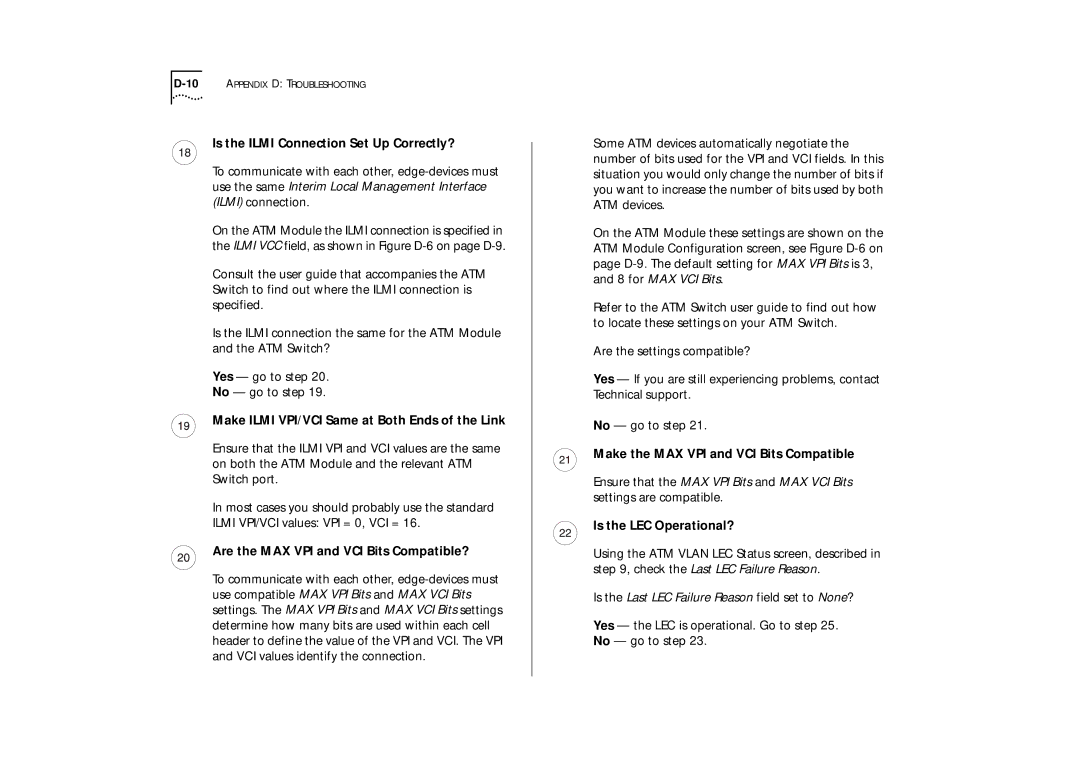
Is the ILMI Connection Set Up Correctly?
To communicate with each other,
On the ATM Module the ILMI connection is specified in the ILMI VCC field, as shown in Figure
Consult the user guide that accompanies the ATM Switch to find out where the ILMI connection is specified.
Is the ILMI connection the same for the ATM Module and the ATM Switch?
Yes — go to step 20.
No — go to step 19.
Make ILMI VPI/VCI Same at Both Ends of the Link
Ensure that the ILMI VPI and VCI values are the same on both the ATM Module and the relevant ATM Switch port.
In most cases you should probably use the standard ILMI VPI/VCI values: VPI = 0, VCI = 16.
Are the MAX VPI and VCI Bits Compatible?
To communicate with each other,
Some ATM devices automatically negotiate the number of bits used for the VPI and VCI fields. In this situation you would only change the number of bits if you want to increase the number of bits used by both ATM devices.
On the ATM Module these settings are shown on the ATM Module Configuration screen, see Figure
Refer to the ATM Switch user guide to find out how to locate these settings on your ATM Switch.
Are the settings compatible?
Yes — If you are still experiencing problems, contact Technical support.
No — go to step 21.
Make the MAX VPI and VCI Bits Compatible
Ensure that the MAX VPI Bits and MAX VCI Bits settings are compatible.
Is the LEC Operational?
Using the ATM VLAN LEC Status screen, described in step 9, check the Last LEC Failure Reason.
Is the Last LEC Failure Reason field set to None?
Yes — the LEC is operational. Go to step 25. No — go to step 23.
